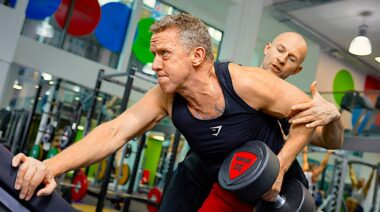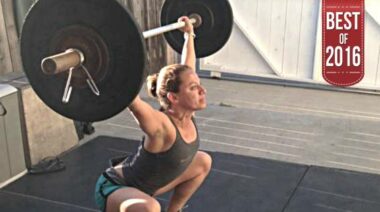You opt to hire a personal trainer to help you attain fitness goals.
- Lose fat
- Improve endurance
- Build muscle and strength
- Feel more confident
- Become healthier in general
All of the aforementioned are sensible goals. But how do you know if you’ve obtained the right trainer to help you reach one or more of those goals? Does he or she have your back and best interest in mind? How do you know?
Here are some basic tips to know if you have the right person leading you on your fitness journey.
Red Flags: Traits of a Potentially Bad Personal Trainer
- Doesn’t have a college degree in some type of exercise science or physical education.
- Obtained his or her certification from an online course.
- Blindly follows the popular training trends.
- Trains with you.
- Socializes with you excessively.
- Doesn’t push you.
- Doesn’t document your training progress.
- Inundates you with popular buzzwords in the industry.
- At the end of your workout, you’ve expended minimal calories.
Thumbs Up: Traits of a Potentially Good Personal Trainer
- Formally educated in exercise science.
- Obtained his or her certification from a reputable organization.
- Has walked the walk. That is, he or she has personally been through many workout routines, busted his or her ass, and been in your shoes.
- Trains you with your best interest in mind, but does not train with you.
- Avoids small talk and concentrates on training you to your maximum potential.
- Pushes you to your limit. Whatever your 100% is, he or she extracts it from you.
- Documents your training progress. He or she records it on a workout recording form or some modern-techno device.
- Employs proven and practical principles of fat loss, muscle gain, cardiovascular endurance, and sensible food intake.
- At the end of your workout, you’ve expended maximal calories.

The Ultimate Test: Your Results
The magnitude of results you are seeking depend on a number of factors:
- Training experience. Novice trainees will realize greater changes in their physiques as compared to those who have been training for years.
- Nutritional intake. Obviously, if you eat a poor diet – especially if you over-consume calories in general – it’s going to impede your goals.
- Genetics. Tall, short, wide, narrow, naturally strong, naturally weak. You can only do so much with what you were given at birth.
Regardless of your situation, your trainer should be prescribing appropriate exercise and measures as prioritized below for each goal. If not it might be time to seek a new trainer.
Fat Loss:
- A calorie deficit with a balance of macronutrients (carbohydrates, protein, and fat).
- Strength training to build or maintain muscle in the wake of a calorie deficit.
- The addition of high-intensity interval training at proper intervals.
Endurance:
- Some type of high-intensity interval training or steady-state endurance if you’re training for a competition such a triathlon, marathon, or obstacle course event.
- Specific practice and replication of the endurance event in which you will be participating.
- Appropriate calorie intake to support your training and competition energy needs.
Muscle Gain:
- Hard-core strength-training prescriptions. Stimulate all muscle groups to promote growth.
- A balanced macronutrient calorie surplus that offers the proper substrate for muscle tissue growth.
- A training session frequency that allows for proper muscle growth and size improvements with adequate recovery between sessions.
- Minimal extra calorie-burning events (i.e. running) that will prohibit muscle growth and size.

Confidence:
- Whatever activity makes you feel confident. Hard-core strength training, endurance training, or a combination of each. It must push you to the limit and make you mentally strong.
- Because looks are important, some type of strength training to fortify your physique.
General Health:
- Some type of training program that emphasizes muscular strength and endurance. That will take you a long way toward being healthy.
- A proper diet that lowers body fat levels, blood pressure, the potential for developing type 2 diabetes, and other avoidable health issues.
If you seek a personal trainer to help you achieve your goals, make sure you get the most qualified person to assist you. He or she should be educated, have your best interest in mind, and be well schooled on the ins and outs of result-producing training.
Check out these related articles:
- How to Spot the Charlatans in the Personal Training Business
- How to Not Hire a Phony Personal Trainer
- What You Need to Know to Choose a Personal Trainer
- What’s New On Breaking Muscle Today
Photos courtesy of Shutterstock.






